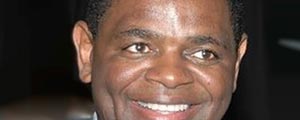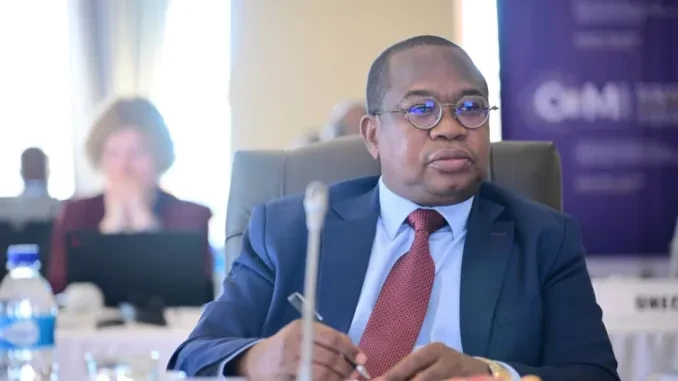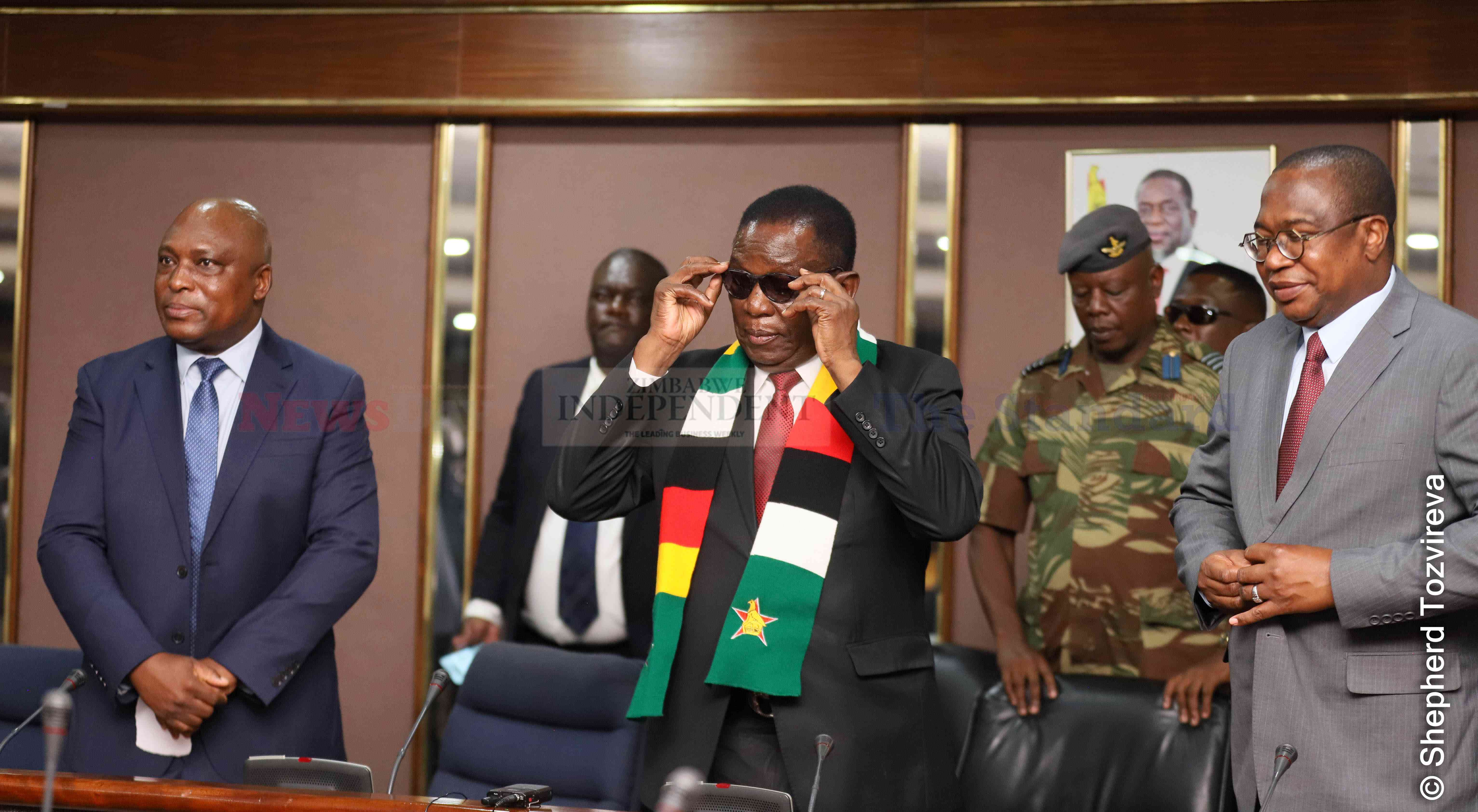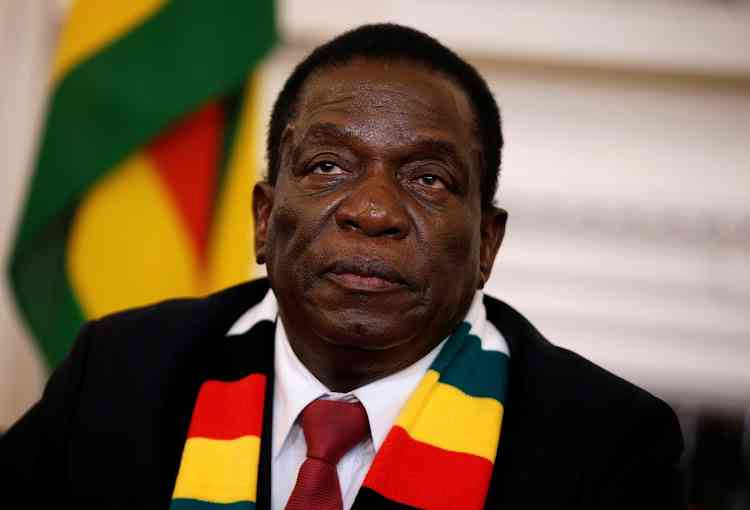
After 33 years of independence, the dream of a country of shared prosperity and equal opportunity that Zimbabwe was meant to be is yet to be realised.
Mutumwa on Tuesday with Mutumwa Mawere
The issues facing the majority of Zimbabweans that were discussed at kitchen tables in 1980 have regrettably not changed to allow the agenda of transformation to move forward.
The issues that ought to have defined the character and personality of the country for future generations have been subordinated to the egos of the few players in the State.
The unintended effect of liberation politics has been to divide people, create a government that serves a few, and entrench an economy that squeezes people out, and also adopt a foreign policy that isolates the country. The voices of progressive thinkers, organisers and community remain unco-ordinated and unfocused on what matters in order to secure a future that is progressive and inclusive.
A real danger exists that the failed policies and ideas that have brought the country to a “deep end” will continue after the forthcoming elections unless citizens take control of their future by acting now.
Zimbabwe’s secure future is not evident in the actions and choices of the present. Zimbabweans are not alone in hungering for the right of self-determination for freedom is one of the universal noblest and deepest aspirations of the human spirit.
It should and must remain Zimbabwe’s closest friend and yet 33 years after independence, a discredited proposition continues to be made that State actors hold the key to prosperity.
- Chamisa under fire over US$120K donation
- Mavhunga puts DeMbare into Chibuku quarterfinals
- Pension funds bet on Cabora Bassa oilfields
- Councils defy govt fire tender directive
Keep Reading
Freedom is and will continue to be Zimbabwe’s real hope to conquer economic inequality, poverty, unemployment and, more importantly, to secure a future that is peaceful.
But in another sense, our new beginning is a continuation of that beginning created two centuries ago when, for the first time in history, government, the people said, was not our master, it is our servant; its only power that which we the people allow it to have.
When political actors look themselves in the mirror, there is no doubt that they will see the ugly side of Zimbabwe for the propensity to act as members of political parties and not as Zimbabweans is deeply entrenched in the Zimbabwean DNA.
Zimbabwe needs unity and yet even the judiciary, a significant institution with an important constitutional role, finds itself being accused of partisanship. One would expect the three branches of government to work and act together not as extensions of political clubs but as members of the same family. Regrettably, the operation of the new Constitution has failed to establish a new political morality.
It would appear that the nation has over the years lost its true purpose and has effectively been reduced to an instrument to advance the political careers of incumbents.
The lack of credible, impartial and forward-looking dispute-resolution mechanisms is easily exposed by the referral of disputes to supra-national institutions like Sadc yet without the intervention of such institutions it does not appear as if Zimbabweans have any alternative to limit the arbitrary and self-serving use of State power.
We live in a world that is rapidly changing, but it would seem that Zimbabweans do not want to change with the times.
History is a story of a people and as we look back at the journey travelled, we are compelled to reflect on the experiences and the stories of those who travelled before our generation.
As Zimbabweans stand together at this defining moment in the nation’s history, the echoes from the ghosts of the past are loud and clear, but the whispers of tomorrow lie in the choices made today.
Surely, the liberation heritage was never meant to be hopelessness, ideological, fearfulness, unfairness, oppressive, hypocrisy and selfishness.
Zimbabweans, despite their cosmetic differences, should be together to confront the bread and butter issues that independence has largely democratised to the extent that the dream of a better life is now no longer a shared one.
Only a few enjoy the freedom that independence promised and yet the majority still ask things of government that we all know it is not equipped to give.
The authority that has been inadvertently yielded to the government truly belongs to the people themselves.
Zimbabweans have watched helplessly while their hardearned incomes have been robbed by government and used principally against their wishes.
At independence in 1980, Zimbabweans knew that it marked a beginning of a journey toward the ultimate in individual freedom consistent with the values of the liberation struggle that when men and women are free to follow their dreams, there can be no limit to human progress and growth.
A secure future is one in which the authority of the State as called for in the Constitution is and should be routinely transferred and yet in the 33-year history of Zimbabwe, no transfer of power has taken place to give citizens confidence and hope that any future transfer will be peaceful.
What is accepted as normal, the routine change of faces in power, in other countries remains a dream in Zimbabwe.
The promise in the successive constitutions that every five years the faces in government would be renewed by the will of the people is yet to be realised and be part of the heritage of the nation. The business of Zimbabwe will still go forward even after the elections.
The country is confronted with economic and social challenges of unprecedented proportions that threaten to shatter the lives and future of the majority of the nation’s citizens. Idle and closed industries that have been victimised by imports have exacerbated the unemployment situation and caused human misery and indignity.
The few that do work are denied a fair and equitable return for their effort by a fiscal regime that has limited headroom to collect taxes that have been transformed into punitive instruments especially when regards is had to the fact that the government is consistently failing to deliver the services expected from it.
For years, Zimbabwe has piled deficit upon deficit as the tax revenues have not historically kept pace with public spending, resulting in the mortgaging of the future for the temporary convenience of maintaining a dysfunctional State.
It would appear that the crowding effect of contemporary Zimbabwean politics will see this trend continue unabated after the elections and for sure the future will be characterised by social, cultural, political and economic upheavals.
The only power that people who do not have power lies in their vote. If people fail to act today, tomorrow will never be secure. We already know what the past has produced and the arrogance of power that produces stubbornness and intransigence.
It is true that the economic ills that Zimbabwe suffers from have been generated for years and their disappearance is not inevitable.
They will only go away because Zimbabweans want this to happen. The first step lies in the minds of the seemingly helpless majority and the elections offer an opportunity to test if the people are ready to be masters of their destinies.
In Zimbabwe’s present crisis, it must be obvious to any rational person that an inclusive government, let alone any government, is not the solution to the problems at hand, but may very well be the problem.
The temptation that independence offered to believe that government by an elite group, albeit drawn from the liberation struggle, is superior to government for, by, and of the people has been betrayed by the actual outcomes from the 33-year experiences.
The people of Zimbabwe against all odds have demonstrated resilience and if they were not capable of governing themselves, the results would have been all too obvious. The burden to secure a prosperous and peaceful future must be borne by all.
The solutions sought cannot be Zanu PF, MDCs, and the other 27 parties, but must be equitable with no one group singled out to pay a higher price as is always the case to target business actors.
The interests of the people of Zimbabwe have no partisan boundaries or ethnic and racial divisions. Putting Zimbabwe on the right flight path also means changing the faces at the top.
If the people at the top had done an excellent job, then surely there would have been no merit in putting term limits in the Constitution. The people have already spoken.
A new beginning is what is called for and all must share in the bounty of a working economy. With the innovation and creativeness that defines the character of a Zimbabwean, the dream of a strong and prosperous Zimbabwe at peace with itself and the region is realisable in this lifetime.
Zimbabwe is a nation with a dysfunctional government and not useless people and this makes the country special in Africa.
The government was and is never meant to assume power except that granted to it by the people.
This forthcoming election provides a unique opportunity to check and reverse the mischief that has developed in people in government which shows that in the minds of the few in the State the government exists independent of the people governed.











